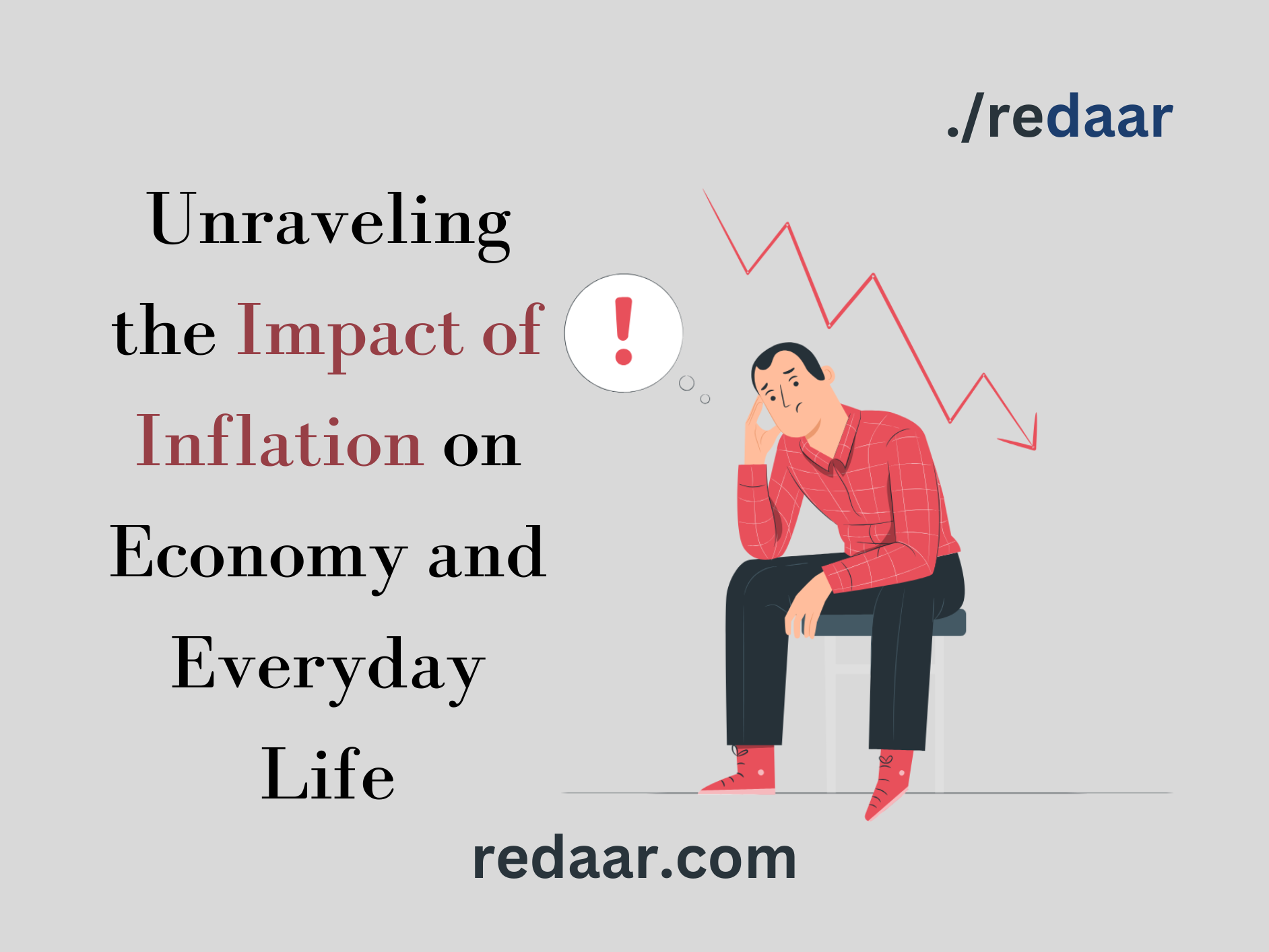Inflation is an everyday term among the common people. Most people are afraid of this term. Inflation refers to the general increase in the prices of goods and services. It often affects the purchasing power of money. Inflation is often the reason for economies failing worldwide. Hence, this is a very important term in the world.
However, if you think that increasing inflation is always bad or that inflation should come to zero, then you are totally wrong. This is the reason that you should really know the term first and what the increase or decrease of inflation means.
In this article, we will walk you through the term and will also introduce you to the dynamics of inflation and how it impacts your everyday life.
Let’s Understand Inflation
Controlled inflation is great for economies to grow. The problem occurs with the fluctuation of the inflation rate as it directly affects the price of different goods and services. The fluctuation of prices which can either be decreased or increased will always impact individuals.
A sudden increase or decrease in price can shake up the strongest of economies in the world. That is the reason most economies take up controlled measures to keep a check on inflation.
Effects on Purchasing Power
The loss of purchasing power is one of inflation’s most apparent and direct effects. Each unit of currency may purchase fewer products and services as prices rise. Individuals and families may see a decline in their standard of living as a result, particularly those who are on fixed incomes or have limited financial means.
A sudden decrease in the purchasing power of money can strike panic in individuals. Most importantly the individuals who are into savings and investments. This we will learn broadly in the next topic.
Impact on Savings and Investments
Savings might lose value over time due to inflation. The real worth of savings may decline as a result of money being saved or invested in low-yielding assets failing to keep pace with inflation. To combat this, people frequently look for investments that outperform inflation, such as stocks, real estate, or other assets that serve as inflation hedges.
Every finance guru advises on saving money or investing them, but when inflation rises, it’s hard to cope with those decisions. This fear prevails most people who think of saving a part of their income.
Debt Burden
Contrary to what it does to savings, inflation occasionally helps borrowers. Borrowers eventually see a decline in the real worth of debt if inflation is greater than the interest rate on a loan. However, severe inflation might impede long-term planning and investments by creating uncertainty.
Employment and Wages
The dynamics of the employment market and wages can be impacted by inflation. Workers may request higher pay as the cost of living increases in order to maintain their purchasing power. This could put pressure on companies, which could result in future job losses, automation, or price increases, continuing an inflationary cycle.
Business and Investment Decisions
Raw materials, labor, and transportation expenses all change as a result of inflation for firms. The choice of whether to absorb the rising costs or pass them on to customers through higher prices is one that businesses frequently have to make. Long-term investments may be discouraged by high or unpredictable inflation, which can also create uncertainty in the corporate climate.
Government Policies and Central Bank Response
Inflation control is a key responsibility shared by governments and central banks. To limit inflation, monetary measures including interest rate changes and money supply restrictions are used. While expansionary policies are used during times of low inflation to promote economic growth, contractionary measures may be used by central banks during times of high inflation to calm down the economy.
Impact on Fixed-Income Groups
Pensioners and low-wage earners are among the fixed-income groups that are disproportionately impacted by inflation. Retirement income on fixed pensions may make it difficult for retirees to keep up with rising expenditures, putting their financial stability at risk. Similarly, during periods of significant inflation, low-income families might have trouble affording necessities like food, shelter, and healthcare.
Global Trade and Exchange Rates
Exchange rates and international trade can be impacted by inflation. A nation’s exports can become more expensive if its inflation rate is higher than that of its trading partners, which would lower its ability to compete on the international market. The price of imports and exports may also alter as a result of fluctuating exchange rates brought on by various countries’ varying rates of inflation.
Inflation Expectations
Current economic activity may be affected by expectations of future inflation. Consumers may increase their present spending if they anticipate big price increases, which would fuel an upward loop of demand-driven inflation. On the other hand, if they expect deflation, they might put off purchases, which would limit demand and lead to economic stagnation.
A major global economic worry that has a significant impact on people, corporations, and governments is inflation. We can negotiate the difficulties it presents by understanding its implications on spending power, savings, investments, employment, and governmental actions.
Any economy needs to strike a careful balance between controlling inflation and fostering economic growth in order to experience long-term prosperity and stability. Let’s discuss more such important topics, keep following us, and keep learning.

